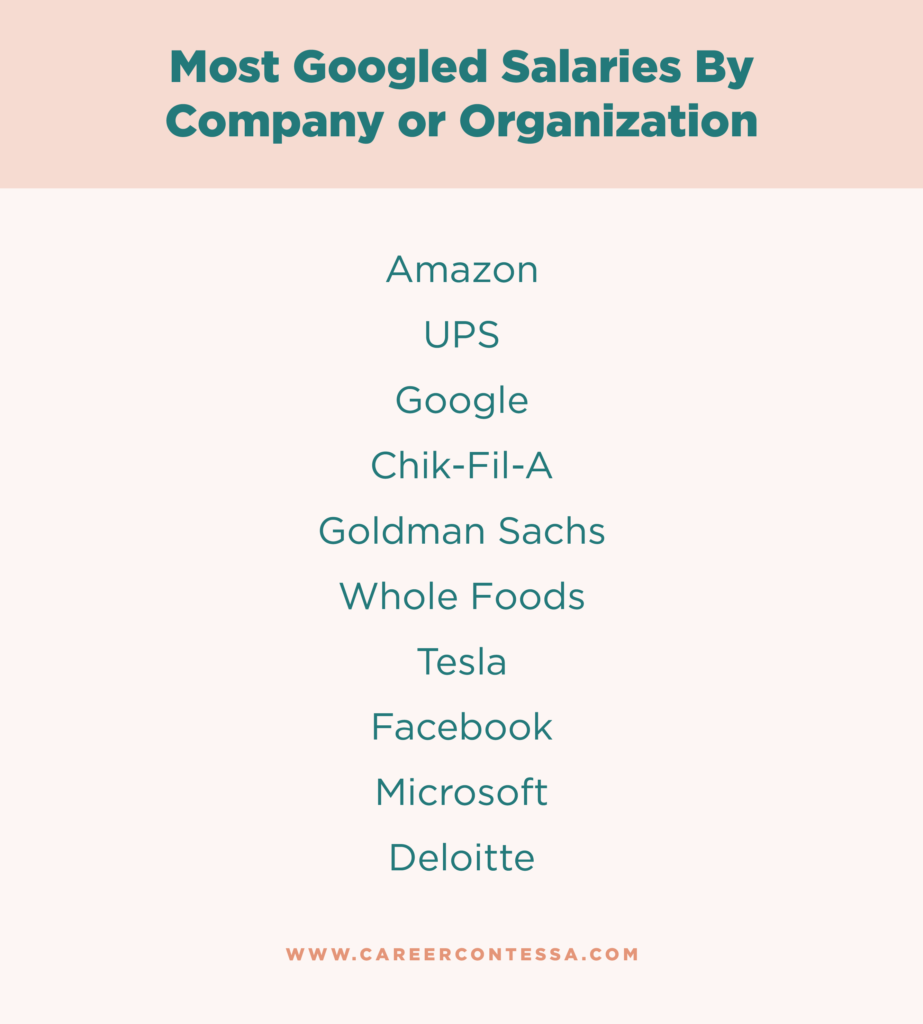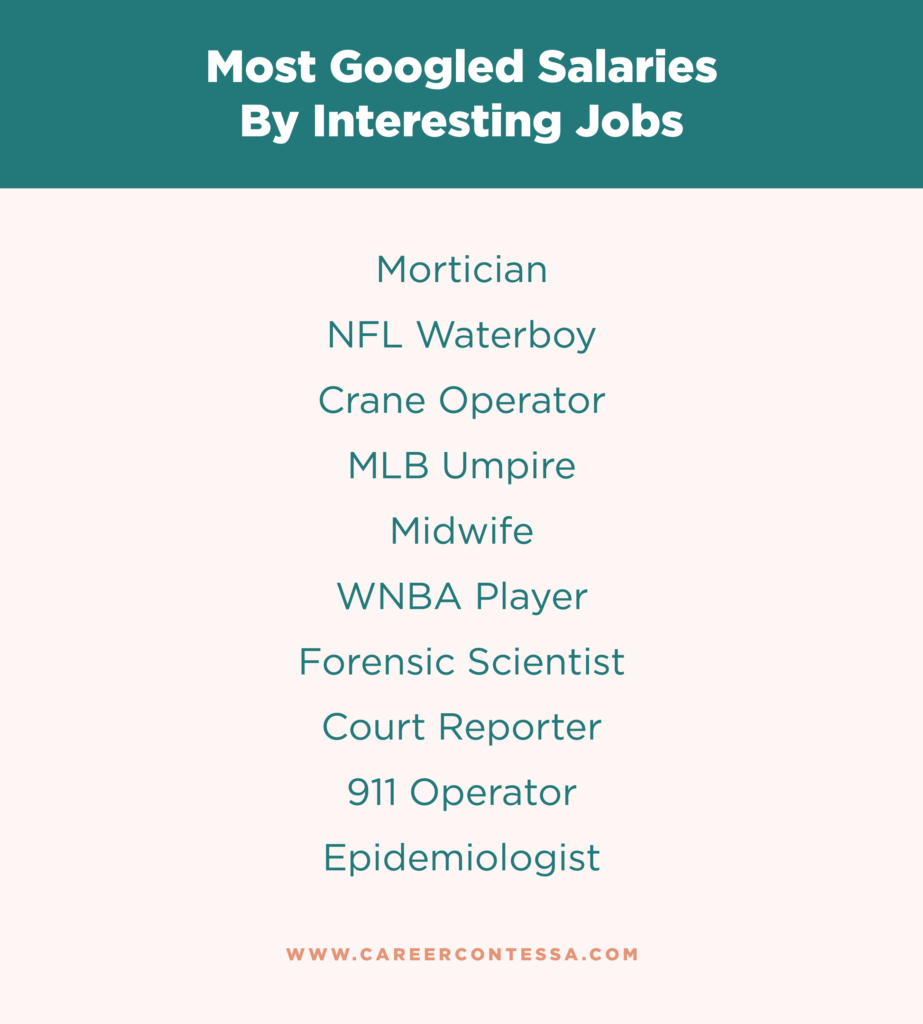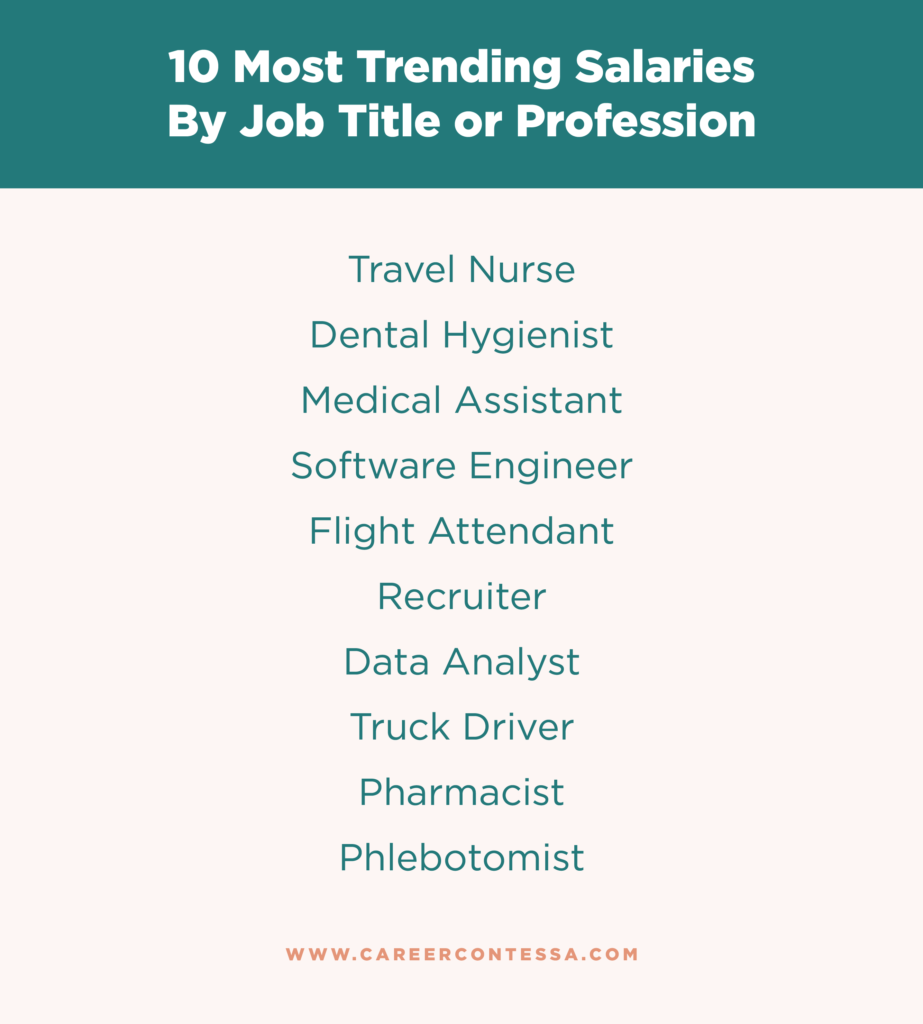Your Salary: 25 Big Salary Questions, Answered
You have salary questions, and we have the answers.
If you’re wondering where salary structures came from, how to negotiate good salaries, the difference between hourly + salary, and what salary Judge Judy earns, you’ve come to the right spot.
In this article, we’re diving into all of our favorite salary trivia. We’ll tell you where the word comes from, though you Latin buffs already know.
After that, we’ll tell you how to differentiate gross salary from net pay.
Finally, we’ll have some fun and dive into the most-searched salary questions on the internet. Basically, we’ll tell you whatever you want to know.
To jump to your desired section, click on one of the links below:
- I: “Salt” Money: Where Salaries Come From
- II: How Your Salary Fits Into Your Life
- Part III. The Art of Salary Negotiation
- IV. Fun Salary Trivia
Let’s dive into all things salary.
Part I: “Salt” Money: Where Salaries Come From
Our first section of salary questions is all about where salary comes from.
Salary, meaning “compensation” or “payment”, first appeared in the English language in the late 13th century. It comes from the Latin Salarium, which actually translates into “salt money”. This word was originally used to describe an allowance given to Roman soldiers to buy salt.
From there, salary became a pretty big deal. It’s moolah, cash, dough, money, money, money. Here are the answers to all questions pertaining to salary.
1. What Is a Salary?
A salary is a fixed amount of compensation paid to an employee on a scheduled basis. Employees on a salary basis typically receive a fixed amount of money on a weekly, bi-weekly, or monthly basis.
A salary is the overall compensation for an entire year, split up into regular paychecks.
Unlike an hourly position, an employee with a salary position is typically expected to work a set amount of days. They are allotted paid vacation days, sick days, and other benefits or bonuses, which we will get into later.
2. What is a Base Salary?
Base salary describes the compensation for a job without any overtime, bonuses, or other opportunities to earn more money.
Base salaries are set at either an hourly rate or as weekly, monthly, or annual income.
3. What is a Gross Salary?
Gross salary is a term used to describe the overall compensation for a role plus any bonuses before taxes and other relevant deductions are taken out.
In simpler terms, gross salary is what it costs for your employer to employ you—without any perks or additional benefits. Gross salary describes your overall compensation before taxes.
4. What Is Net Pay?
Net pay, also known as take-home pay, is a term used to describe your compensation after all taxes and deductions are applied.

In simpler terms, net pay is the paycheck you actually receive.
5. What is the Difference Between Exempt and Non-Exempt Employees?
Normally, an easy way to differentiate between exempt and non-exempt is by separating hourly employees from salaried employees.
Exempt Employees: Salaried employees who aren’t earning an hourly wage based on completed hour, are not afforded mandatory breaks and cannot earn overtime pay once they exceed 40 hours.
Non-Exempt Employees: Hourly employees, who are protected under the Fair Labor Standards Act, receive mandatory breaks, overtime compensation, and pay based on the number of hours worked in a certain pay period.
Of course, there are exceptions to these two “buckets” of employees.
6. What Does Salary Include?
Technically speaking, a salary is a compensation paid to an employee based on an agreement of a set number of hours (usually 36-40+ per week)
Salaries are often offered alongside an offering of perks and benefits, including:
- Paid holiday
- Sick leave
- Health insurance
- Stocks or shares
- Pension plans
- Bonuses
7. What is the Difference Between Hourly and Salary?
Salaried employees receive a set compensation in relation to their agreed-upon annual salary. Hourly workers work different schedules and varying hours, from week to week.
8. Can Salaried Employees Earn Overtime Compensation?
The answer is mostly no, but there are exceptions.
Under the Fair Labor Standards Act (FLSA), an employee that’s categorized as exempt (aka salaried) is ineligible for overtime pay.
However, there are some exceptions that are detailed in this in-depth article by hourly.io.
9. Are There Disadvantages to Salaried Jobs?
There can be some disadvantages to being paid as a salaried employee. Here are some disadvantages:
- When an employee would earn more with a non-exempt status due to longer hours worked.
- When an employee could have the option to receive tips as an hourly worker
- Salaried employees can be on-call all week.
- In situations where they work with hourly employees, salaried employees can be expected to fill in for last-minute absences.
Part II: How Your Salary Fits Into Your Life
This next section of salary questions relates directly to your salary. Since these questions are going to be personal, we’ll provide the best resources to help you calculate your salary wherever necessary.
10. How Much Will My Paycheck Be?
To calculate your take-home paycheck, you can use some of the most helpful salary calculators. Before that, know your company’s payment schedule. Here are common pay period structures:
- Monthly Paycheck
- Bi-Weekly Paycheck
- Other Pay Periods
11. How Do I Calculate a “Good” Salary
Use salary research tools to find out how your peers are being paid in similar positions.
There are great salary research tools all over the internet, but here are a few of our favorites.
12. What is a “Good” Salary?
A good salary is very subjective and depends on a slew of factors. These factors include geographic location, number of people in your household, years of experience, industry, and much more.
For more on what goes into a good salary, check out our other piece right here.
13. How Do I Budget With My Salary?
Our favorite way to budget is by using the 50/30/20 rule. The rules of this type of budget are as follows:
- 50 percent of your income goes to needs.
- 30 percent of your income is dedicated to wants.
- 20 percent of your income is dedicated to savings and debt repayment.
While we’re huge fans of the 50/30/20 rule here at The Salary Project, we understand that every budget is personal. Here are budgeting templates to help you budget virtually anything.
14. How Many Deductions Should I Claim on my W-4?
If you’ve ever filled out your W-4 incorrectly, you know this pain acutely.
We found this helpful guide from Liberty Tax on claiming allowances.
Claim 0 Allowances When:
- Someone else (like your parents) claims you as a dependent on their tax return.
Claim 1 Allowance When:
- You’re single (unmarried), and you have one job.
Claim 2 Allowances When:
- If you have more than one job and are single.
- You can claim 2 when you’re single and have one job, but be prepared for the possibility of owing come tax season.
- If you’re married, you can claim two allowances (one for you and one for your spouse)
Claim 3 Allowances When:
- You’re married and have a child.
15. What Are the Pros and Cons of Hourly Versus Salary?
As always, there are pros and cons to working as a salaried or hourly worker, but it all depends on your circumstances and your comfort level with each. Here are a few commonly-held pros and cons to each employment status.
Editor’s Note: As with anything, there are exceptions to each of these pros and cons. Employees with hesitations can work with understanding employers to create a salaried or hourly position that works for everyone.
Salary Employee
Pros:
- You have a dependable income
- Typically comes with other benefits like vacation, sick days, and insurance
Cons:
- On the other hand, you won’t be paid for overtime or extra hours worked, though there are some exceptions to this rule.
Hourly Employee
Pros:
- You can (usually) be more in control of your schedule.
- You can earn overtime.
Cons:
- You likely don’t have paid sick days.
- You don’t have as much of a dependable income.
16. What Should My Hourly Rate Be?
Research your job title using a tool like Salary.com or Glassdoor. If you’ve worked in a similar salaried position in the past, you can use a salary calculator to break your salary down into an hourly rate.
When converting a salary to an hourly rate, keep in mind whether you’d be working as an exempt or non-exempt employee, as taxes have a huge impact on the breakdown.
Part III. The Art of Salary Negotiation
When it’s time to negotiate, we have some advice for you. Try to relax, remember that you work hard, and go in ready to negotiate the salary (or the raise) that you know you deserve.
17. When Can I Ask for a Pay Raise?
There are a few circumstances in which you should prepare your ask. When you have exceeded expectations in your role, you should ask for a pay raise.
If you’ve taken on more responsibility, you should ask for a pay raise. When you have transitioned into management, you should ask for a pay raise. If you can draw a direct line from your work input to extra income for the entire company, you should probably ask for a raise.
18. How Much of a Pay Raise Can I Ask For?
How much more salary you ask for depends on a few factors. Your proposed salary increase will depend on a few factors, including:
- Inflation
- Location
- Job Performance
- Job Sector
Make sure to keep all of these things in mind when asking for a raise.
Pro Tip: Don’t ask for your raise during an annual review. Ask for your raise when you truly feel you’ve earned it. Heck, it might come before your one-year mark.
19. How Can I Ask for a Bonus?
When you’ve been performing far above expectations at work and your company has had a recent influx of capital that can be attributed to your hard work, it might be time to ask for a bonus structure to be included in your annual salary.
Bonuses are particularly attractive to smaller companies, start-ups, or organizations that have seasonal highs. In lieu of a salary increase, a bonus structure allows an organization to reward you with a lump sum of money when they know it’s readily available.
20. When Can I Discuss Salary in an Interview?
This is a tricky one. Basically, the rule of thumb is to ask about salary once there is a mutual interest.
In a perfect world, employers would be more straightforward with the budget they have allotted for a role before entering into a time and energy-intensive interview process.
Ask about salary in your second interview or one you have a good idea that you’d really like to work at this company. Don’t give the impression that salary is all you care about, but make sure your interviewer or recruiter knows it’s important—because it is.
21. How Can I Calculate My Desired Salary Range?
Be prepared to give a number when asked, “What is your desired salary?“
When discussing your desired salary, keep these tips in mind:
- Do research beforehand.
- Be confident.
- Avoid giving an exact number too soon. Give a salary range.
- Don’t be afraid to counter offer if you don’t like their salary offer.
IV. Fun Salary Questions + Salary Trivia
There are so many searches about celebrity income, the highest salaries, and the most well-paid alternative jobs (like underwater welders!).
Finally, we wanted to use this last section to have a little fun with some of the most Googled salary questions posed on the internet. This section is mainly for fun, but there’s also great insights into lucrative jobs that offer great salaries.
22. What are the Most Googled Salaries by Company or Organization
Every huge organization, from Google to Whole Foods, is constantly Googled in relation to their salaries, compensation, interview methods, and high-paying jobs that don’t require a degree.

23. What Are the Most-Googled Salaries?
Here are the most Googled salaries. Apparently, many people have a secret dream of working in the NFL!

24. How Much Do Professional Athletes Earn?
The world is very inquisitive about professional athletes, Presidents, Vanna White, and Judge Judy. Here are the most interesting folks whose salaries catch everyone’s attention. And, it’s no surprise, because these salaries are doozies!

25. What Are the Best-Paying Jobs?
Some of these below jobs are searched for good reason; many of these are also the most well-paid jobs one can acquire without a formal degree.

World’s Best Hack: A Script To Ask For A Raise
Download our free raise script + learn:
Heads up! By downloading our script you’re agreeing to join our newsletter. You can unsubscribe at any time!







